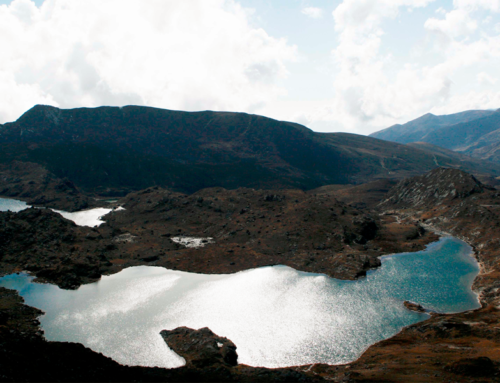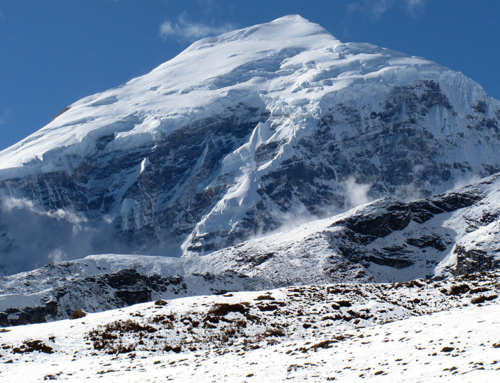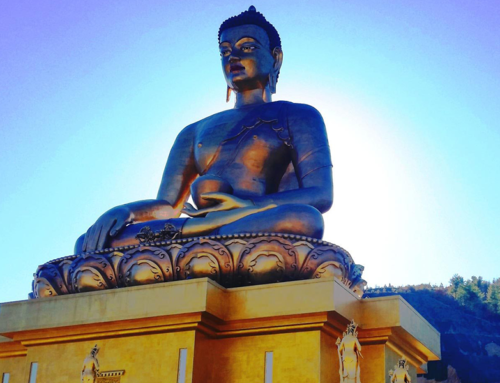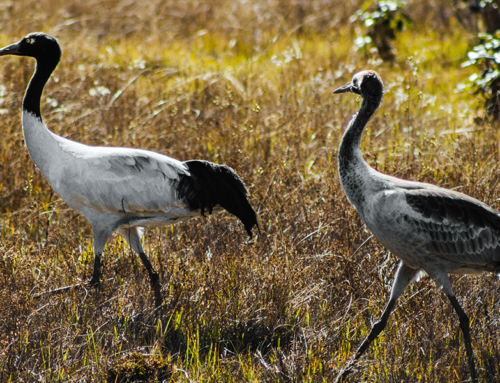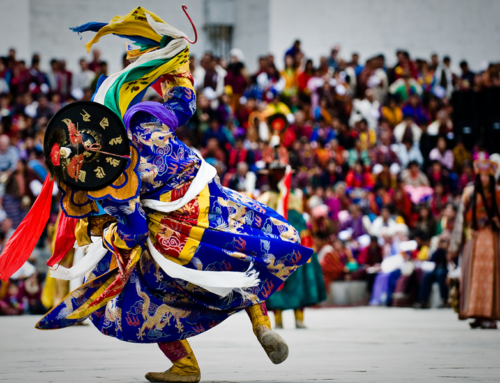Description
This route offers a great variety of trekking conditions, from picturesque farmland and forests to alpine pastureland and high mountain passes (16,100 ft). Spectacular campsites, beneath some of Bhutan’s most impressive peaks, of which the most notable are Chomolhari and Jichu Drake, are also features of this trekking route. Numerous isolated dzongs and scattered settlements, including the extraordinary village of Laya, and the Gasa hot springs make this trek one of the most popular.
Season: This trek is generally open from April to June and mid- September to mid-November. However, April is the best trekking month for the Laya region.
Details
Duration: 22 Days
Level: Hard
Season: April – June (Recommended), September – November
Detailed Itinerary
The flight to Paro is one of the most spectacular mountain flights in the world, with a constantly changing panorama of some of the highest mountains on earth. After lunch enjoy afternoon sightseeing around Paro, including a visit to the Ta Dzong Museum housing many religious relics, works of art and handicrafts. Next, visit the Rimpong Dzong. Dzong’s are large monasteries and district administrative centres, which were once strategic forts. Overnight at your hotel in Paro.
After breakfast hike to Taktsang Monastery, walking approximately 1.5 to 2 hours uphill. The view of Taktsang Monastery built on a sheer cliff face 900 metres above the valley floor is spectacular. Afterwards visit 7th Century Kyichu Lhakhang. Overnight at your hotel in Paro.
17km, 5-6 hours
The trek starts from Drukgyal Dzong (2,580m). The trail climbs gently through rice terraces and fields of millet before entering an area of apple orchards and forests. Soon you reach the army post of Gunitsawa (2,810m). This is the last stop before Tibet. The trail continues up to 2,870m, where there are several good camping places in meadows surrounded by trees.
20km, 7-8 hours
The trail again follows the Pa Chu (Paro river), traversing through pine, oak and spruce forests. After crossing a bridge to the left bank of the river, stop for lunch. Then we continue along the river, climbing upwards thought forests, and crossing the river once more before reaching our campsite (3,750).
19km km, 7-8 hours
The path ascends for a while until we reach the army camp. We then follow the river above the tree line, enjoying stunning views of the surrounding peaks. Hot lunch is served at a yak herder’s camp. A short walk from here into the valley takes us to our campsite a Jangothang (4,040m).
Rest Day
Day at leisure, enjoying superb views of the south face of Chomolhari and the ruined dzong.
18km, 7-8 hours
The trail follows a stream before crossing over to the right bank. We now start our climb up to the first ridge with views of Chomolhari, Jichu Drake and Tserimgang. The trail then crosses a valley until climbing up to Nyele – La Pass (4,700m). We descend gradually to our campsite at Lingshi (4,000m).
10km, 5-6 hours
We continue on the trail past Lingshi Dzong, perched on its hilltop, enjoying exhilarating views of hills, the winding river and magnificent peaks. It is an easy day and a pleasant walk through villages. After lunch, a short walk takes us to Chebisa village, where we camp by the side of a stream of a stream (3,850m).
17km, 6-7 hours
Today begins with a stiff climb of nearly four hours up a ridge to Guba – La (4,500m). We descend from the pass through rhododendrons to our lunch location before crossing a stream and continuing through rhododendron forests and past yak herders’ camp. Tonight’s campsite is at an altitude of 4,250 m.
18km, 6-7 hours
This trek starts with a climb up to Jari – La Pass (4,700m). We descend from here to Tasharijathang valley, the summer grazing ground of the rare Himalayan Takin. After crossing a stream, the trail ascends to Robluthang (4,200m) where we set up our camp for the night.
19km, 7-8 hours
We start the day with a long climb up to Shinji-La Pass (4,900m), enjoying stunning mountain views from the path. After crossing the pass we descend to Lingithang. The last part of today’s trek is steep, with splendid views of Gangchenta peak (6,840). Tonight’s campsite is at an altitude of 4,100 m.
10 km, 4 – 5 hours
In the morning we walk to a superb view of Gangchenta peak in front of our camp. The walk to Laya is very pleasant through a damp forest filled with moss and singing birds. We set up camp on arrival at Laya village, the second highest settlement in the country, at 3,800m.
Rest Day
Explore Laya village. You can go and visit one of the local houses. Traditional Bhutanese hospitality is extended even to a stranger, and a cup of tea and chang (alcohol brewed from barley) is always offered.
19km, 8-9 hours
We descend from Laya to the army camp at the side of the Mo chu (Mother river of Punakha), and then walk alongside the river till reaching a bridge. After crossing the bridge, the track winds up and down through juniper and fir forests. We camp in the forest at Chamsa (3, 800m).
14km, 6-7 hours
After a 30 minute walk over flat land to Bele-La Pass, it’s downhill all the way to Gasa Tshachu. We take lunch at Gasa village (2700m), afterwards visiting the village and Gasa Dzong. The Dzong was built in the 17th century. We then descend to Gasa Tshachu (hot spring), where we set up our camp (2,200m).
Rest day
After a long trek, this is the place to relax! Enjoy a hot bath and try some of the local beer.
Drive through scenic mountains from Gasa to Punakha (3-4 hrs). Punakha was the ancient capital of Bhutan. Overnight at your hotel in Punakha.
Visit Punakha Dzong, built in 1637 by the Shabdrung, the ‘Unifier of Bhutan’. It is situated at the confluence of the Mo Chu and Pho Chu (Mother and Father Rivers) and is the winter headquarters of the Je Khenpo and hundreds of monks who move en masse from Thimphu to this warmer location. The three story main temple of the Punakha Dzong is a breathtaking example of traditional architecture with four intricately embossed entrance pillars crafted from cypress and decorated in gold and silver. It was here in 1907 that Bhutan’s first king was crowned.After lunch, enjoy a walk to Chimi Lhakhang, temple of Drukpa Kuenly. He inherited the Divine Madman title since he revolted against the orthodox Buddhism in his time. He taught the people that religion is an inner feeling and it’s not necessary that one should be an ordained monk. He is also considered a symbol of fertility. Overnight at your hotel in Punakha.
Drive to Bhutan’s capital, Thimphu via the Dochu-La pass (3,100 meters), which on a clear day offers an incredible view of Himalayan peaks (about 3 hrs total driving time). The drive through the countryside affords a glimpse of everyday life in this most remote of Himalayan kingdoms. In the Dochu-La area there are vast Rhododendron forests that grow to tree size and bloom in late April/early May covering the mountains in a riot of glorious spring colour. After lunch, enjoy the afternoon at leisure. Overnight at your hotel in Thimphu.
Enjoy a full day of sightseeing, including a visit to the National Memorial Chorten, 12th century Changangkha Temple, the Zilukha Nunnery and Tashichhodzong. Overnight at your hotel in Thimphu.
Visit the School for Arts and Crafts, The National Library housing a collection of 8th century scriptures, the Traditional Paper Factory and the Folk Heritage Museum. If your visit coincides with the weekend, you can walk through the Thimphu Market. Late afternoon transfer to Paro for overnight.
Breakfast in the hotel, then drive to the airport for flight to your onward destination. Tashi Delek.



